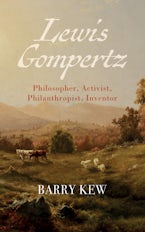- Home
- biography & autobiography
- She Calls Herself Betsey Stockton
She Calls Herself Betsey Stockton
The Illustrated Odyssey of a Princeton Slave
Foreword by John J. Baxter
Imprint: Resource Publications
Merging scholarly research and biographical narrative, She Calls Herself Betsey Stockton reveals the true life of a freed and highly educated slave in the Antebellum North. Betsey Stockton's odyssey began in 1798 in Princeton, New Jersey, as "Bet," the child of a slave mother, who captured the heart of her owner and surrogate father Ashbel Green, President of Princeton University.
Advanced lessons at Princeton Theological Seminary matched her with lifelong friends Rev. Charles S. Stewart and his pregnant bride Harriet, as the three endured an 158-day voyage as Presbyterian missionaries to the Sandwich Islands in1823. Armchair sailors will savor Stockton's own pre-Moby Dick whaleship journal of her time at sea, a shipboard birth, and life at Lahaina, Maui, where Stockton is celebrated as founding the first school for non-royal Hawaiians.
Back on US soil, Stockton became surrogate mother to the Stewarts' three children, sailed with missionaries on the Barge Canal to the Ojibwa Mission School, and later returned to her hometown, establishing a church and four schools which are the centers of a still-vibrant African American Historic District of Witherspoon-Jackson.
Constance K. Escher is a former Research Associate at the Shelby Cullum Davis Center for Historical Studies, Princeton University. She is the author of She Calls Herself Betsey Stockton, a biography. Escher taught for twenty-six years in the Princeton Public Schools.
“Escher has written a jewel of a book about an extraordinary American woman. From her fascinating opening chapter musing on photographs to her spirited conclusion, Escher has not just evoked a life, she has mediated on its larger meanings with grace and style.”
—Sean Wilentz, The George Henry Davis 1886 Professor of American History, Princeton University
“In this twenty-first-century time of racial reckoning, this is an important book. I was impressed by Escher’s careful research of both late eighteenth-century New Jersey General Assembly Acts and of Ashbel Green’s recently available (1990) extensive diaries. She combines all that with intimately telling of Betsey Stockton’s early years as an enslaved child.”
—Louise Lauck Kingston, Trinity Church, Princeton, New Jersey
“Princeton has the honor of claiming the life of a woman of valor and determination. Elizabeth ‘Betsey’ Stockton, who was born into slavery, served as a missionary, and became the first teacher of colored children and adults in Princeton, was a pioneer for justice. Constance Escher captures the essence of a woman of color whose journey elevated the lives of Princeton’s historical community through freedom, education, and faith.”
—Shirley A. Satterfield, Historian of African American Life in Princeton, New Jersey
“Escher presents an in-depth biography of a remarkable woman of color. She Calls Herself Betsey Stockton presents Stockton’s life as it was: complex and unique. . . . Escher’s work brings Stockton and her world to life, taking care to highlight Stockton’s agency in making many of her own choices about her future. . . . Escher’s biography ensures that Stockton’s story is available for all to read and reflect on Stockton’s life and lasting legacy.”
—Hannah Schmidl, Public Humanities Coordinator, Princeton Public Library











